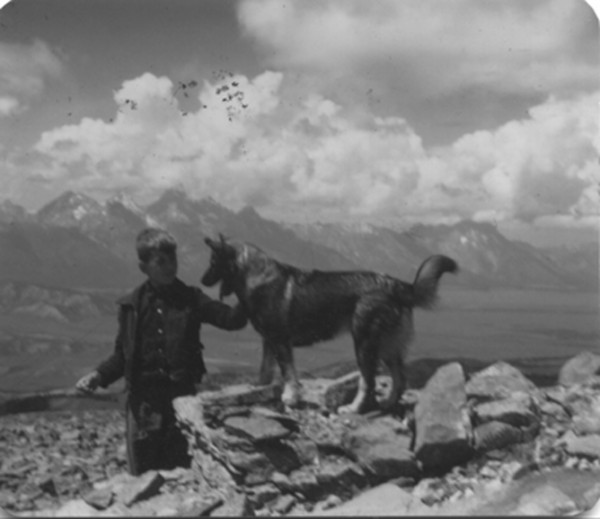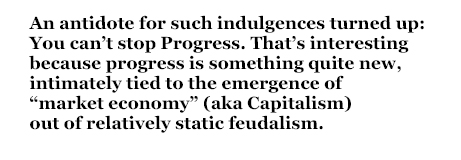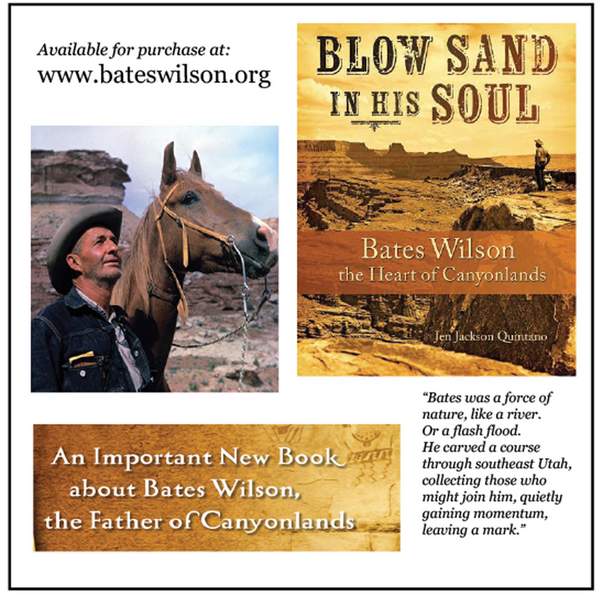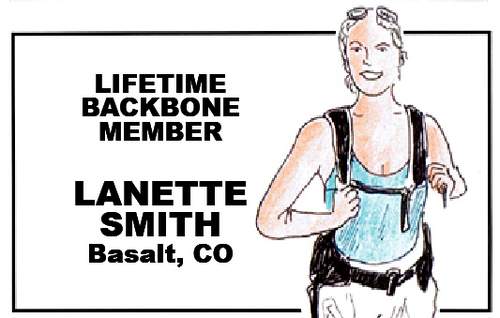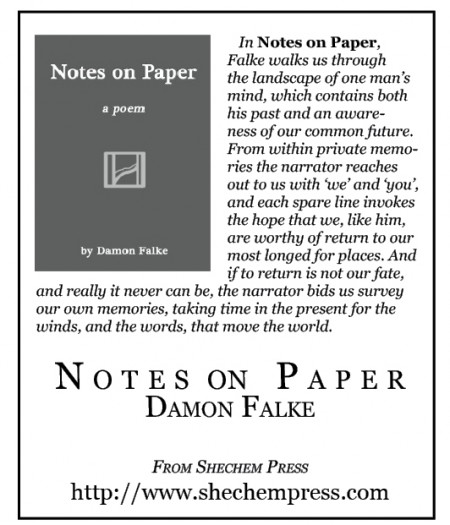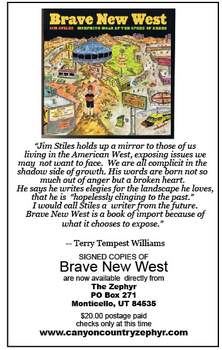From the Zephyr Archives…
Nostalgia, from Greek nostos, a return, and algos, pain or grief. Somewhere in its long journey through languages the word, at least in American English, acquired a shift that turned pain and grief to something like sweet sorrow with an aura of wanting to return to the good old days. That was unacceptable of course, in an era of up-and-at-’em enterprise.
An antidote for such indulgences turned up: You can’t stop Progress. That’s interesting because progress is something quite new, intimately tied to the emergence of “market economy” (aka Capitalism) out of relatively static feudalism. By now, in these enlightened times, we are expected to know that the future is all and what it brings is the best we can expect of all possible worlds. The past is water under the bridge; we must move on.
However, life doesn’t obey dumb rules like that. My father, Olaus, enjoyed looking back to boyhood forays at an edge of Moorhead, Minnesota, where a remnant forest gave a few kids a place to roam, to wonder, to spend time with animals. They called it “The Wilderness.” Nostalgia, yes, but he also told of the desperate poverty of those times and it was good to have left that behind. Even so, there was a strong sense that good things were intimately wound up in poverty. Once Olaus, exasperated, told me, “We were poor, but we knew how to have fun.”
Some of the Moorhead kids lived at a big produce farm in the summer, working for wages, weeding, and hoeing. I remember Olaus laughingly telling of a bee buzzing inside his straw-stuffed pillow in the loft where he and the other kids slept, but he was too tired to worry about it. Next night the bee was still there, still buzzing; the weary worker let it be, dropped into deep slumber. The bee in the pillow, the exhaustion of the worker, is not saccharine sentiment, it is vivid recall of scenes from the life of labor that taxed those kids to the very limit just as farm workers today are taxed to the very limit.
For many people memories of the good old days are anything but sweet. One man scolded me for going back to the land, told me I didn’t know how bad it could be. Well, we found out. Farm life, country life, can take people to the far edges of endurance. Women especially speak of the double burdens: the insecurity, the oppressions, the patriarchy. I sometimes wonder if John Muir went to Canada to escape the draft, or to go wild, or to get out from under his land-and-boy-breaking father.
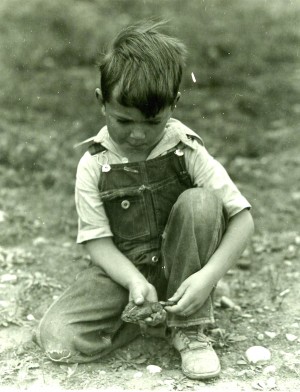 In the last few years my daytime recalls of war have been more frequent, nightmares too that exaggerate and distort. Dreams and memory bring valuable messages, I’m convinced of that, but they can’t be trusted. Nostalgia can’t be trusted either. But their visitations are real events. We pay attention. Why? I think it’s because memory, no matter how partial or sentimental, contains vital material for survival.
In the last few years my daytime recalls of war have been more frequent, nightmares too that exaggerate and distort. Dreams and memory bring valuable messages, I’m convinced of that, but they can’t be trusted. Nostalgia can’t be trusted either. But their visitations are real events. We pay attention. Why? I think it’s because memory, no matter how partial or sentimental, contains vital material for survival.
A wolf approaching a dead horse or cow recalls a pack mate dying in agony after eating a bit of fat laced with strychnine. She fine-tunes that memory, carefully assembles and assorts smells, sights and sounds of the dying, the feel of the ground at a freshly buried trap, the exigencies of the present moment. All of that is grist for careful judgment and decision, what to do next.
We do that too and the exigencies of our lives now in a time of terror (aka endless war) demand a stepped-up effort to use to the hilt what our memories bring. Let the struggle begin, let loose the whole remuda, the sleek horses of judgment. Because our rulers are trying in every way possible to turn us into obedient forgetters who will strain forward into the future; leaving in falsehood dust the collective history of our nation. They want us to respond like trained poodles to whatever is dished out by them and their running dogs; they want us to treasure only the nostalgic glow on out-of-context bits selected with extreme care from revered heroes — Washington, Jefferson, Lincoln, even revolutionaries like citizen Tom Paine. Baits of nostalgia laced with forgetfulness.
Dangerous days, nightmare nights.
Our dear friend Martin Murie died in 2012.
To read the PDF version of this article, click here.
To comment, scroll to the bottom of the page.
Don’t forget the Zephyr ads! All links are hot!

